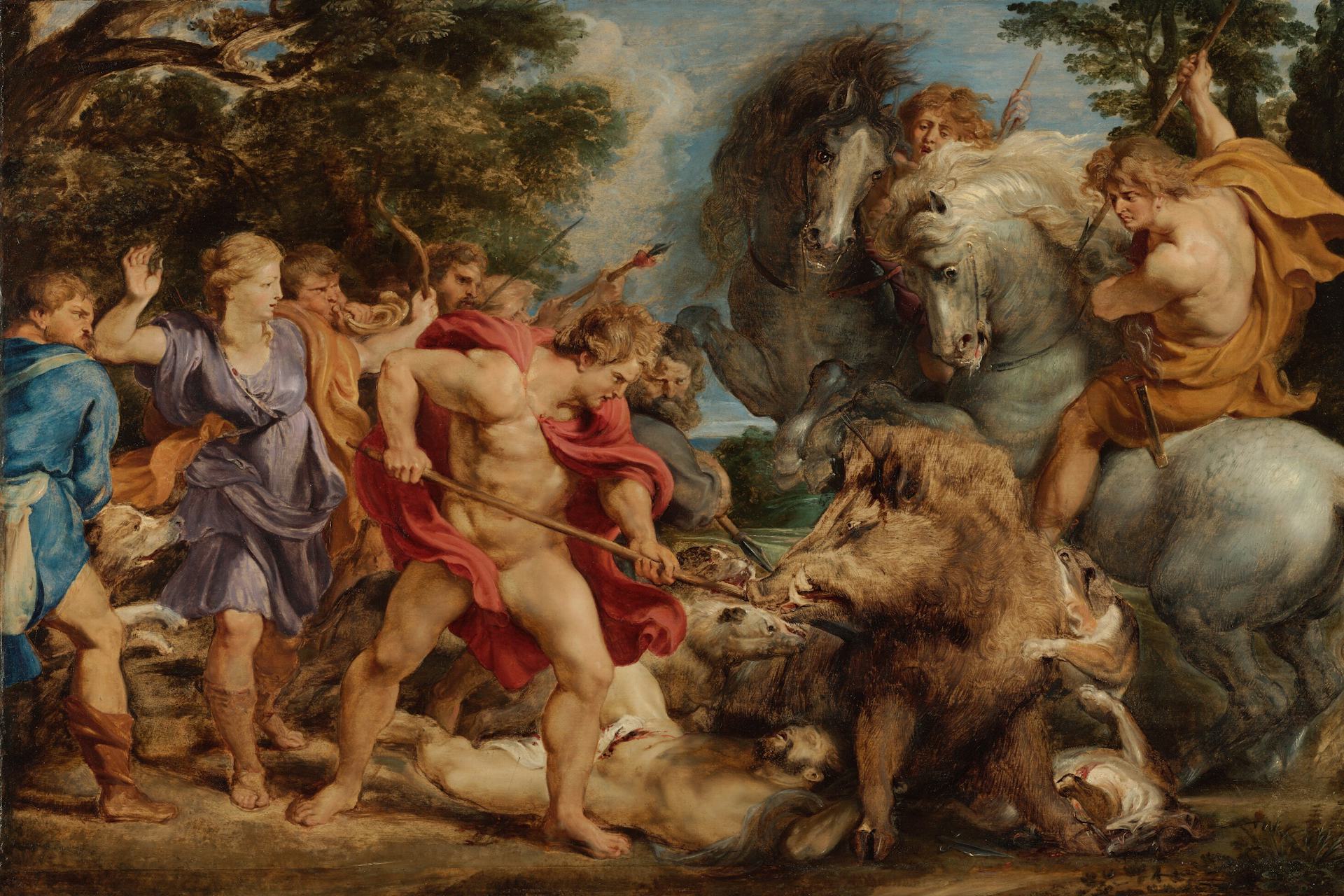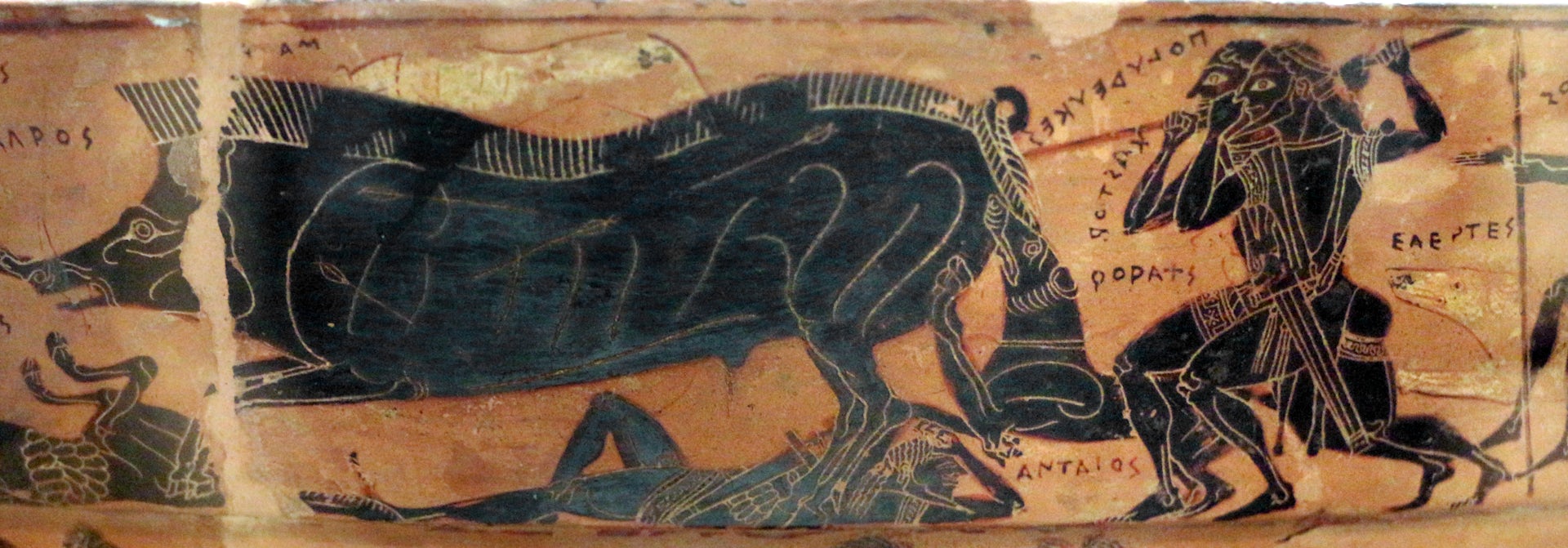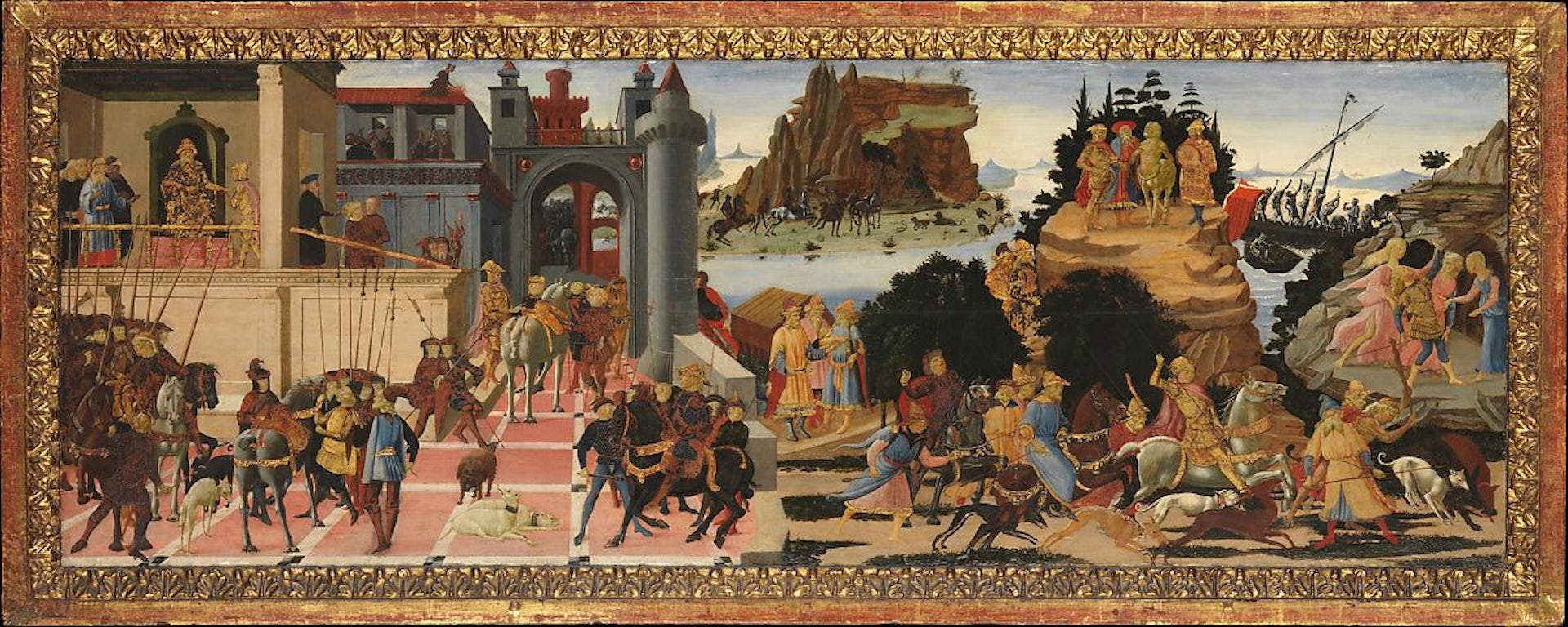Ancaeus (son of Lycurgus)

The Calydonian Boar Hunt by Peter Paul Rubens (ca. 1611–1612). The corpse of the fallen Ancaeus can be seen below the boar.
The J. Paul Getty Museum, Los Angeles, CAPublic DomainOverview
Ancaeus, son of Lycurgus (not to be confused with the other Ancaeus, who was a son of Poseidon), was a hero from the Arcadian city of Tegea—a kind of Arcadian Heracles. He was known for his physical strength and was, in fact, the strongest hero of his time after Heracles.
Clad in a bearskin and wielding a great double ax, Ancaeus took part in several heroic exploits, including the voyage of the Argonauts and the Calydonian boar hunt. But this second exploit proved to be his last: during the famous hunt, Ancaeus was violently gored by the Calydonian boar and died of his wounds.
Etymology
The name “Ancaeus” (Greek Ἀγκαῖος, translit. Ankaîos) may be derived from the Indo-European root *h₂enk-, meaning “bend.” Other Greek words stemming from this root include ἀγκύλος (ankýlos), “curved, bent”; ἀγκάλη (ankálē), “curved arm, armful”; ἀγκών (ankṓn), “elbow”; ἄγκος (ánkos), “mountain glen”; and ἄγκιστρον (ánkistron), “hook.”
Pronunciation
English
Greek
Ancaeus Ἀγκαῖος (Ankaîos) Phonetic
IPA
[an-SEE-uhs] /ænˈsi əs/
Attributes
General
Ancaeus was a hero who hailed from Tegea, an important city in the central Greek region of Arcadia. As the son and grandson of kings, he was a member of the Tegean royal family, though he himself never became king.
Ancaeus was one of the strongest heroes of his time, second in strength only to Heracles. He was known for wearing a bearskin, and his weapon of choice was a double ax—an outfit that recalls the lion skin and club of Heracles.[1]
Iconography
Ancaeus was sometimes represented in ancient art, in scenes from the voyage of the Argonauts or the Calydonian boar hunt. Artists most often showed him as he lay dying from the wounds he received from the Calydonian boar.
This death scene appeared in a few works that were already celebrated in antiquity, including a painting by Scopas in the Temple of Athena Alea[2] and another painting by Aristophon of Thasos.[3] The death of Ancaeus is also illustrated on the François Vase, a large and intricately decorated krater (mixing bowl) from around 570 BCE.[4]

Detail from the François Vase, a black-figure krater signed by Kleitias and Ergotimos, showing the death of Ancaeus (here identified as “Antaios”) during the Calydonian Boar Hunt (ca. 570 BCE)
Florence Archaeological Museum, Florence / SailkoCC BY 3.0Family
In the standard account, Ancaeus was the son of Lycurgus of Tegea and a descendant of Arcas, the founding hero of Arcadia.[5] His mother’s name, according to Apollodorus, was either Cleophyle or Eurynome,[6] while another source called her Antinoe.[7] Apollodorus named Ancaeus’ brothers as Epochus, Amphidamas, Iasus, and Cepheus.[8]
There were, however, other versions of Ancaeus’ genealogy. Hyginus reports a tradition in which Ancaeus was the grandson, rather than the son, of Lycurgus (Ancaeus’ father is not named in this tradition).[9]
According to one early source, Ancaeus was not Arcadian at all but rather Aetolian, the son of the Calydonian king Oeneus and thus the brother of Meleager and Agelaus.[10] Another writer, the Byzantine scholar John Tzetzes, knew of a tradition in which Ancaeus was the son of Actor and Eurythemis, herself the daughter of a certain Acastus.[11]
Ancaeus was married to a woman named Iotis.[12] He had a son, Agapenor, who fought with the Greeks in the Trojan War.[13]
Mythology
Ancaeus and the Argonauts
Ancient sources agree that Ancaeus was one of the Argonauts (though there was also another Ancaeus, this one a son of Poseidon, who was likewise numbered among the Argonauts, which sometimes led to confusion).[14]
According to Apollonius of Rhodes, Ancaeus was sent to help the Argonauts by his father Lycurgus. Lycurgus could not take part in the expedition himself because he needed to stay home and look after his elderly father Aleus.
Apparently not satisfied with having Lycurgus alone as his caretaker, Aleus tried to keep Ancaeus in Tegea too by hiding his weapons when it was time for him to depart. Undeterred, Ancaeus made do with the best substitutes he could find: a bearskin and a double ax.[15]
Ancaeus was extremely strong—the strongest of the Argonauts after Heracles. It was in recognition of this strength that Ancaeus was assigned the middle rowing bench alongside Heracles. When the Argonauts had to sacrifice two bulls prior to putting to sea, Ancaeus killed one bull with a single blow of his ax, while Heracles killed the other with a single blow of his club.[16]

Panel by Jacopo del Sellaio (c. 1465)
The Metropolitan Museum of ArtPublic DomainThe brawny Ancaeus was a useful figure to have on board during the arduous journey. He was a capable warrior, using his ax to great effect in the Argonauts’ battle with the Bebryces.[17]
The Calydonian Boar Hunt and the Death of Ancaeus
Ancaeus is probably best known as one of the heroes killed during the Calydonian boar hunt. The goddess Artemis had sent a great boar to wreak havoc on the lands of her enemy, King Oeneus of Calydon. Oeneus’ son Meleager decided to gather the greatest heroes of his time to hunt down and kill the creature, and Ancaeus answered the call.
But when the heroes attacked the boar, the creature charged and gored Ancaeus in the groin, leaving him to die an agonizing death.[18]
Worship
Ancaeus was highly regarded by the Arcadians, who viewed him as a major cultural hero. His father Lycurgus was worshipped as a hero, and Ancaeus likely received similar worship.[19]